How AI Can Boost Productivity
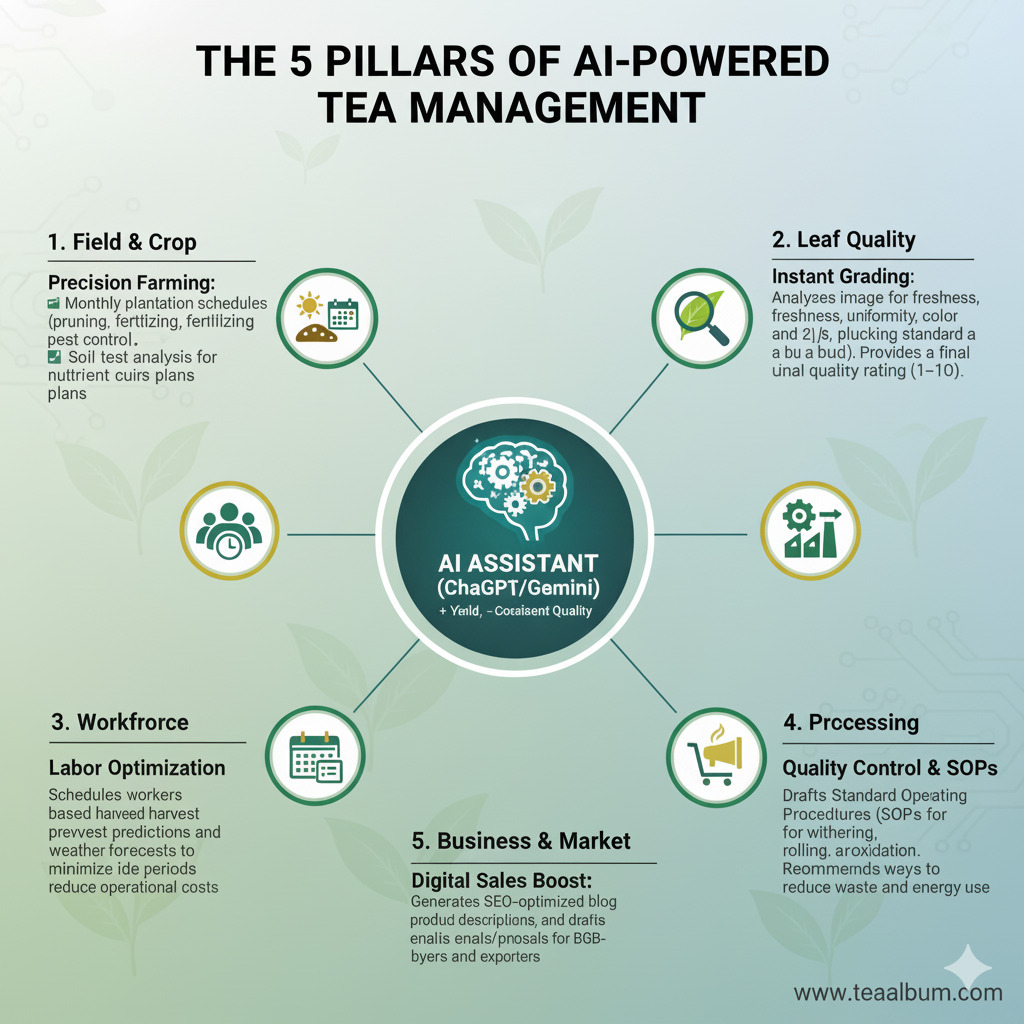
In recent years, the tea industry has been facing multiple challenges, leading to a noticeable decline in many traditional tea gardens. They need something special to help them get out of this hole.
For decades, the tea garden industry has been heavily relying on the traditional method for producing tea. However, to keep pace with the times, it is extremely important to adopt something special. AI tools like ChatGPT or Gemini can be a game-changer for the tea gardens if they’re used properly. Today, we will discuss how artificial intelligence can be used to boost the productivity of any tea garden. Hopefully, it will be fun.
Whether you manage a small tea garden or oversee large-scale production, AI can help you improve yield, reduce costs, and maintain consistent quality — all while preserving the soul of traditional tea farming.

Why Tea Gardens Need Smart Digital Tools
Nowadays, tea planters are facing rising challenges — unpredictable weather, rising input costs, labour shortages, and changing market demands. Traditional methods of producing teas are valuable; however, they can sometimes limit the growth.
That’s where digital tools like ChatGPT or Gemini can add more value. This AI assistant can help manage the tea garden better.
- It can help automate repetitive tasks.
- Scan data for better decisions
- Generate reports, schedules, and marketing content.
- Contribute to sustainable, modern cultivation practices.
It’s like having a digital assistant for your tea estate — available 24/7, ready to help plan, write, and optimise every part of your operation.
Future of AI in Tea Cultivation
We have seen some remarkable advancements in AI technology in the past few years, and it will continue to evolve.It is not very far that AI can be connected with IoT sensors, weather stations, and drones to get real-time data on soil, rainfall predictions, moisture, and pest outbreaks.
The tea gardens that will first adopt this blessing AI are likely to stay ahead in this competitive field, which involves reducing waste, boosting profitability via data-oriented decisions.
Green Leaf Quality Testing By Using AI
Tools like ChatGpt or Gemini can be a great helping hand for determining the quality of green leaf. At first the image of green leaf need to provide to AI and then needs to write a suitable prompt. The most astonishing fact is AI is capable of providing really crucial detail within a fraction of seconds about the quality of tea leaf, which may be impossible to provide by naked eyes.
Moreover, this details can be goldmine for the garden authority which can be use in future for the betterment.
Step for Quality Testing through AI:
- Take a decent picture of the plucked tea leaf as provided.
- Now upload it in the AI (ChatGpt or Gemini)
- Add the prompt as below
Prompt for Green Leaf Quality Testing
Analyse the provided picture of the tea leaves in detail. Moreover, deliver a professional evaluation of green tea leaves as if conducted by a tea expert. Include the following points as well:
copy the prompt
Measuring the overall quality of the leaf – level of freshness, colour tone, and appearance of moisture, uniformity.
Determine the plucking standard – take a look at the leaves, whether they follow the fine plucking(2 leaves and one bud), coarse plucking, or uneven plucking.
Physical aspects of the tea leaves – size, tenderness, shape, and presence of any damaged, mature, or burnt leaves.
Tea Leaf Color & Texture Analysis – Evaluate greenness of leaves, brightness, and leaf evenness; determines if leaves indicate healthy photosynthesis or stress (yellowing, dryness, pest impact).
Readiness Test– assess if these leaves are decent for producing high-quality green tea (figure out oxidation risk, withering suitability).
Area of improvement – suggest how to make better leaf quality (including timing of plucking, shade, soil, handling of green leaf, or storage improvements).
Final Green Leaf Rating – rate the overall leaf quality on a scale of 1–10 with a summary (e.g., “Good – suitable for premium green tea production”).
Download Sample Green Leaf Quality Report
📄 Download Full Green Tea Leaf Quality Report (PDF)
Field & Crop Management
AI can help streamline everyday field tasks:
Plantation calendar: By using AI, a 12-month schedule can be created for plucking, pruning, fertilising, and pest management.
Soil and climate guidance:
Soil holds the key to success for the tea garden; if the soil is in an inappropriate condition, it will be too optimistic to expect a decent crop. Meanwhile, in that case, AI can be handy. By pasting the soil test results into AI like ChatGPT or Gemini, it can provide a solid plan to boost the soil condition.
Climate planning: Ask for strategies to mitigate the impact of drought, excessive rainfall, or heat stress.
Example Prompt:
“Make a monthly tea plucking and maintenance schedule for a garden in Darjeeling focused on black tea production.”
Workforce Management and Optimisation
AI can be a valuable asset in optimising human resources to achieve maximum results. Examining the previous performance data, harvest predication, and weather forecasts. AI can figure out the labour schedule with more conviction, which will help to ensure the precise number of workers is assigned when needed. It eventually minimises the size of idle periods. As a result, it will reduce the operational cost also boost productivity per worker.
Labor is certainly the nucleus of every tea garden, and in addition, it is also considered the biggest challenge for the garden authority.
ChatGPT can assist in dealing with it better:
- Generating optimised work programs for pluckers alongside field workers.
- Composing training guides for fresh employees — from leaf handling to security rules.
- Creating attendance or wage report templates for supervisors.
- This helps keep efficiency while reducing hesitancy and redundancy.
The Future is Smart and Green
Introducing tools like ChatGPT or Gemini does not refer to replacing human resources; it will help to make it even better. It’s all about strengthening the existing way of working to help the growers. Observing the unseen facts, predicting something unpredictable, and scrutinising every segment of production. Nowadays, more and more people are turning to tea, and its global demand is rising fast. Embracing AI is a bonus – it is becoming a prerequisite to ensure productivity, sustainability, and profit in the tea industry.
Quality Control & Processing
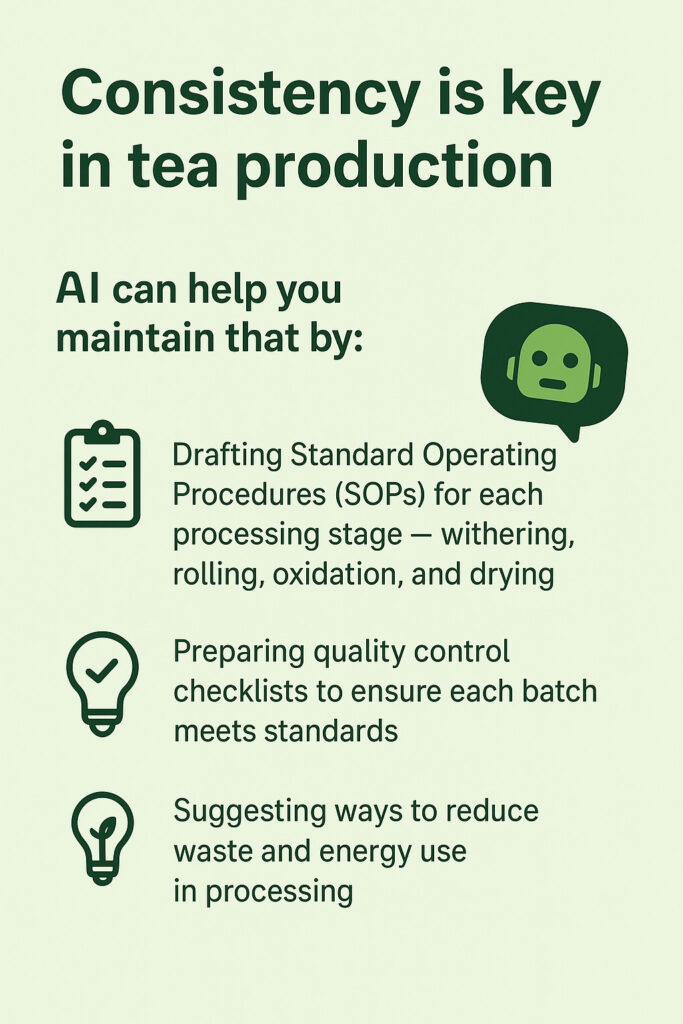
Reliability is key to successful tea production. ChatGPT can help you boost that by:
- Drafting Standard Operating Procedures (SOPs) for each processing stage — withering, rolling, oxidation, and drying.
- Develop quality control checklists to ensure that each batch meets the standards.
- Recommend ways to decrease waste and energy use while processing the tea.
💡 Prompt Idea:
“Suggest a comprehensive SOP for managing withering and rolling steps in black tea manufacturing.”
Business & Marketing Support
A tea garden can not be compared to the typical cultivation, as it also includes sales and branding. ChatGPT can help:
Write blog posts that are conducive to seo or product descriptions for your web portal.
- Create social media content, monthly posting calendars.
- Draft emails or proposals for B2B buyers and exporters.
- Generate a marketing master plan for reaching new markets.
- It can boost the brand’s visibility also trustworthiness, it must for contemporary tea businesses.
Conclusion — The Smart Way Forward
AI is not here to replace the originality of the farmer by any means. However, it can help to add another dimension to the tea garden industry to boost productivity and profit. Tools like ChatGPT or Gemini can add more conviction to making a decision and improve productivity.
📚 Suggested Sources & References
- McKinsey & Company. (2024). From bytes to bushels: How gen AI can shape the future of agriculture. Retrieved from https://www.mckinsey.com
- World Economic Forum. (2025). Delivering regenerative agriculture through digitalization and AI. Retrieved from https://www.weforum.org
- Jabeen, N., & Hussain, S. (2024). Tea harvesting and processing techniques and its effect. Frontiers in Nutrition / PMC. Retrieved from https://pmc.ncbi.nlm.nih.gov/articles/PMC10743253/
- Ramaswamy, S., & Lin, J. (2024). Processing technologies for manufacturing tea beverages. Food Chemistry Advances, ScienceDirect. Retrieved from https://www.sciencedirect.com
- Lee, Y., et al. (2025). Effect of tea manufacturing processes and cultivars on infusion color. Scientific Reports (Nature). Retrieved from https://www.nature.com
- Sikka, P., & Taneja, R. (2023). Affordable Artificial Intelligence — Augmenting Farmer Knowledge with AI. arXiv preprint. Retrieved from https://arxiv.org/abs/2303.06049
- Wang, D., & Li, K. (2025). AI in agriculture: A survey of deep learning techniques for crops, fisheries and livestock. arXiv preprint. Retrieved from https://arxiv.org/abs/2507.22101
- Ahmed, R., & Chowdhury, M. (2025). AgroLLM: Connecting farmers and agricultural practices through large language models. arXiv preprint. Retrieved from https://arxiv.org/abs/2503.04788
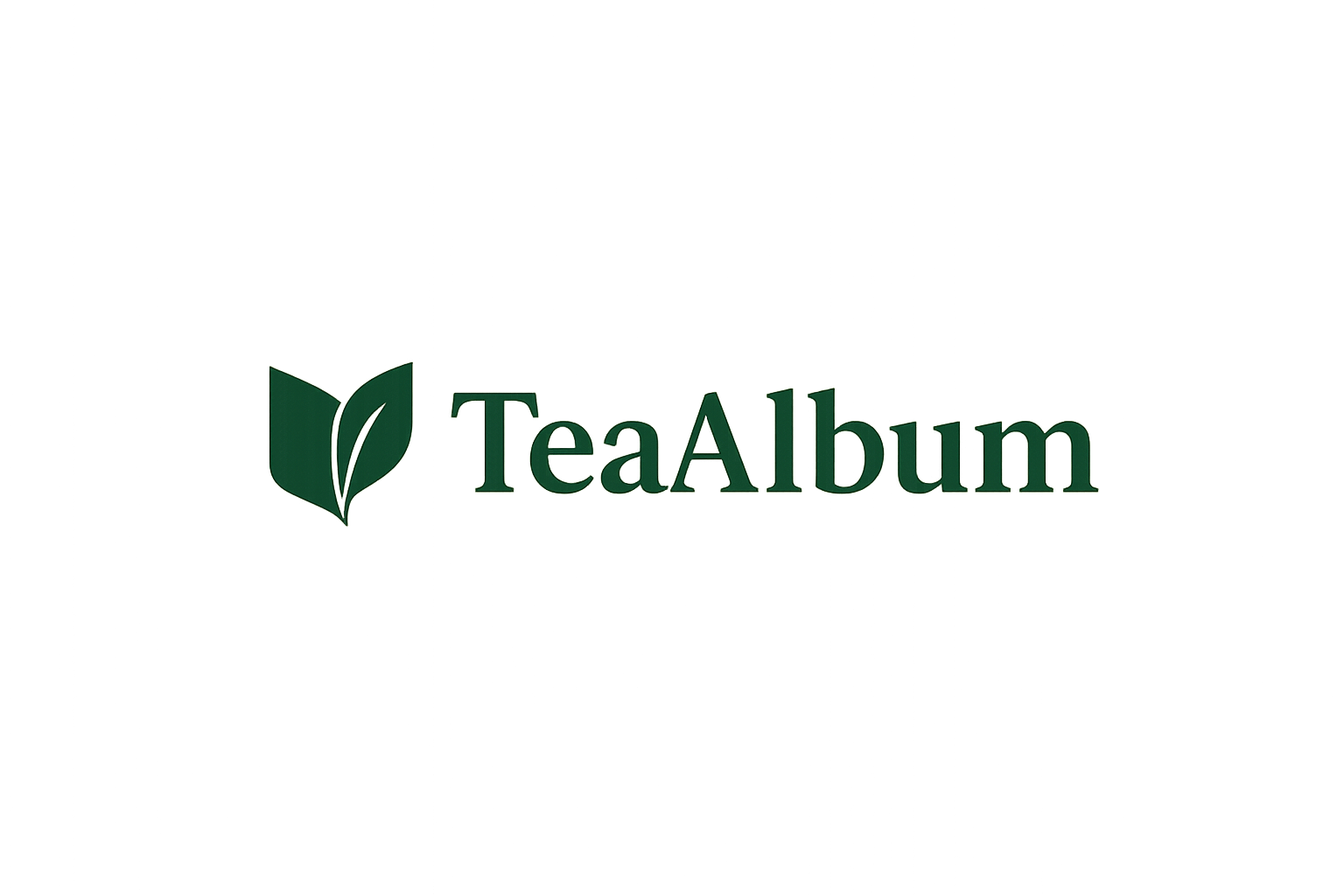

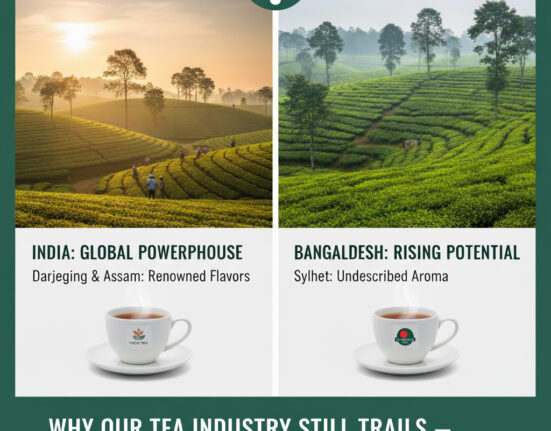

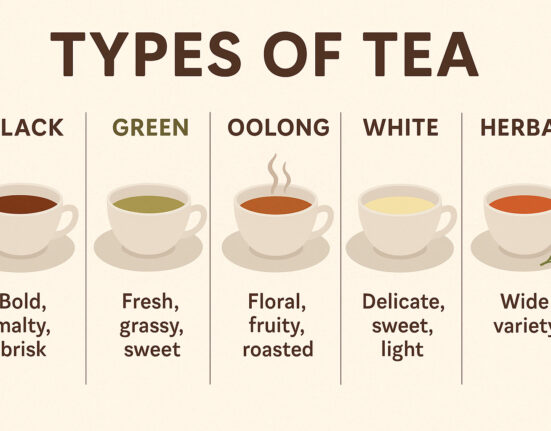
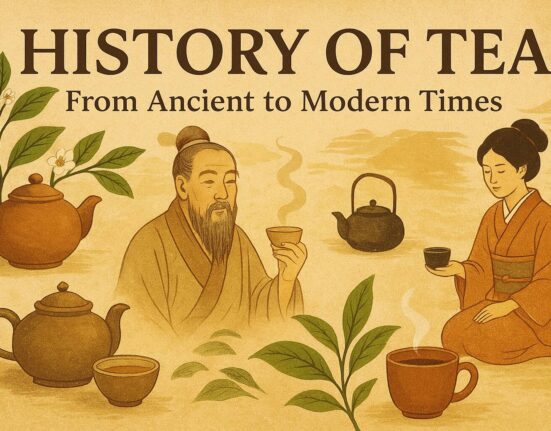
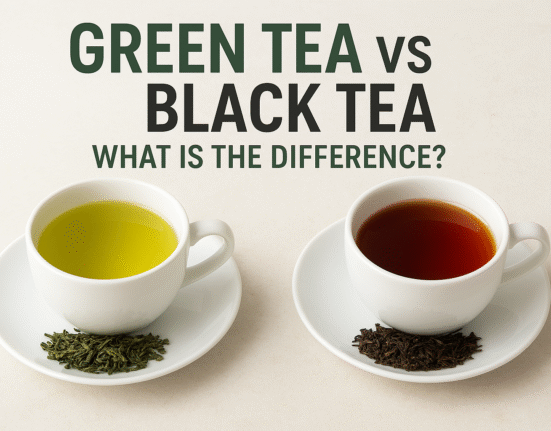
Leave feedback about this